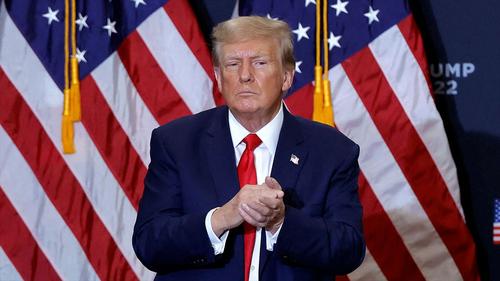
Donald Trump, the 45th President of the United States, has left an indelible mark on American politics and society. A polarizing figure, Trump’s presidency was marked by controversy, bold policy decisions, and a style of leadership that defied convention. From his improbable rise to power to his tumultuous tenure in the White House, Trump’s legacy continues to spark debate and division among Americans and observers around the world. Let’s delve into the complex legacy of Donald Trump, examining his impact on politics, culture, and the future of the United States.
Donald Trump’s journey to the presidency was anything but conventional. A real estate mogul and reality television star, Trump’s foray into politics began with his announcement of a presidential bid in 2015. Running on a platform of populism, nationalism, and anti-establishment rhetoric, Trump quickly gained traction among disaffected voters and conservative Republicans who were drawn to his outsider status and promises to shake up Washington.
Despite facing skepticism and opposition from within his own party, Trump defied the odds and clinched the Republican nomination for president. In the 2016 general election, he squared off against Democratic nominee Hillary Clinton in a contentious and closely watched race. In a stunning upset, Trump emerged victorious, shocking the political establishment and becoming the first president without prior political or military experience.
As president, Trump pursued an ambitious agenda that prioritized economic nationalism, deregulation, and immigration reform. His administration implemented sweeping tax cuts, rolled back environmental regulations, and renegotiated trade deals in an effort to revitalize the American economy and bring back jobs to the United States. Trump also took a hardline stance on immigration, advocating for stricter border security measures and controversial policies such as the travel ban targeting predominantly Muslim countries.
Trump’s presidency was characterized by a confrontational style of leadership and a penchant for controversy. He frequently clashed with the media, labeling unfavorable coverage as “fake news” and attacking journalists and news outlets that criticized him. Trump’s use of social media, particularly Twitter, became a defining feature of his presidency, allowing him to communicate directly with his supporters and bypass traditional channels of communication trump flag.
Despite his accomplishments and successes, Trump’s presidency was marred by controversy and scandal. His administration was dogged by investigations into Russian interference in the 2016 election, allegations of collusion with foreign powers, and accusations of obstruction of justice. Trump’s handling of the COVID-19 pandemic, including his dismissal of scientific advice and promotion of unproven treatments, also drew criticism from public health experts and political opponents.
In the 2020 presidential election, Trump sought reelection against Democratic challenger Joe Biden. The election, held amid a global pandemic and widespread social unrest, saw record voter turnout and intense partisan polarization. Despite Trump’s claims of widespread voter fraud and efforts to challenge the results, Biden emerged victorious, becoming the 46th President of the United States.
As Trump’s presidency comes to a close, his legacy remains a topic of intense debate and speculation. Supporters praise his efforts to revitalize the economy, renegotiate trade deals, and appoint conservative judges to the federal judiciary. Critics, however, condemn his divisive rhetoric, disregard for democratic norms, and failure to effectively respond to the COVID-19 pandemic.

